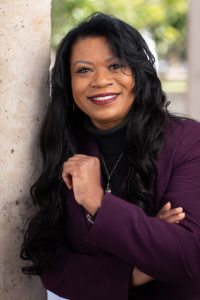
Within and outside our academic walls, it is essential that educators and administrators (1) create a culture of academic health, equity, and equality that empowers all students, especially those populations who have historically been marginalized and oppressed; and (2) uproot the manifestations of racism that are visible and invisible in our academic institutions.
To uproot such visible and invisible racism in our academic institutions, we need to take a proactive approach. This includes creating policies and practices that promote diversity, equity, and inclusion, as well as addressing the historical and systemic barriers that marginalized communities have faced in education. This means actively seeking out and addressing implicit biases and microaggressions, revising curriculum and textbooks to eliminate historical exclusions and racial misrepresentations, and implementing antiracism education and training in academic settings.
Racism can take many forms, and it is essential to acknowledge and address both visible and invisible racism in academic institutions. Visible racism is often easier to identify and address because it is overt and easily recognizable. However, invisible racism can be much more insidious because it is often subtle, implicit, and ingrained in our cultural norms and beliefs. For example: viewing a non-white colleague as being an “equity hire” rather than as an individual who deserves the job; viewing an “advancement” as a DEI quota-elevation rather than as a promotion for an individual who works hard in their profession; telling a racist joke at the office and everyone laughs even though they may feel uncomfortable with the joke; clutching your purse when someone of color gets on the elevator; or being in an academic setting where non-whites often receive microaggressions and discrimination. Ultimately, addressing visible and invisible racism in our academic institutions requires a collective effort from everyone involved, including educators and administrators. While it is a challenging task, we must remain committed to the cause if we hope to achieve meaningful change in our academic institutions.
The 2020 year of racial reckoning was a powerful moment in history that highlighted the need for systemic change to address racism and promote equity in all areas of our society, including in our academic institutions. Even the White House conscripted an Executive Order mandating an advancement of racial equity and support for underserved communities in the Federal Government. In the interest of reciprocity, however, there has been an uptick in academic legislation which has vehemently sought to undermine antiracism laws and challenge civil rights and equity legislation, directly affecting academic settings. The fact that some lawmakers are now seeking to restrict antiracism instruction and training in academic settings is deeply concerning. To date, four states — Idaho, Iowa, Oklahoma, and Tennessee — have passed legislation limiting an educators ability to discuss racism in academic institutions. Further, at least 15 other states have introduced bills — over 60 state-level bills — seeking to impede how educators discuss racism in their classrooms; essentially vilifying antiracism education as racially discriminatory.
This trend is a clear indication that American education is still deeply rooted in racial hierarchy, where white fragility and resistance to change prevent the confrontation and abolishment of racism in our academic institutions. This is unacceptable, and we must continue to fight to make antiracism a core value in our academic institutions. To do this, we need to continue to have open and honest conversations about race and racism, and we need to ensure administrators and educators are empowered to address these issues in our academic institutions. This means providing teachers with the necessary training and resources to teach antiracism effectively, and it means working to create a culture of inclusion and respect in our academic institutions. We also need to continue to hold lawmakers accountable and to fight against any legislation that seeks to restrict antiracism education and training in academic settings. This requires organizing and mobilizing, reaching out to elected officials, and making our voices heard through protests, social media, and other means of activism.
Furthermore, implicit bias and unconscious bias training, as well as raising awareness and revising policies and long-standing practices, can go a long way in making antiracism a core value in academic institutions. Examining and revising curriculum and textbooks to eliminate historical exclusions and racial misrepresentations, is also a necessary action to implement change to ensure all students are treated equally.
Ultimately, creating a society within our academic institutions that is free from racism requires a collective effort from us all. I hope lawmakers and administrators will take the necessary steps towards dismantling structural racism in academic institutions and create a more equitable and inclusive environment for all students.
Bio: Taneashia is a Senior Contracts and Licensing Associate at the Salk Institute for Biological Studies, in La Jolla, CA, where her job comprises of contract drafting, licensing negotiation, patent protection, and other intellectual property matters, such as managing Salk’s trademarks. Previously, Taneashia was a Staff Attorney at the Legal Services of South Central Michigan, where her primary focuses were Family Law and Civil Litigation. Prior to becoming a Staff Attorney, she was a Judicial Law Clerk to the Hons. Rosemarie Aquilina and Hugh B. Clarke Jr. at the 30th Circuit Court and the 54-A District Court, respectively.
Taneashia earned her LLM in Intellectual Property from Michigan State University College of Law, and her JD (cum laude, Law Review, Law Journal) in Litigation from Western Michigan University Cooley Law. She is admitted to practice in the State Bar of Michigan, the District of Columbia Bar, and before the U.S. Supreme Court. She is a member of Delta Sigma Theta Sorority, Inc., American Inns of Court, Earl B. Gilliam Bar Association, and the San Diego County Bar Association.
Taneashia is a mother to a Navy Veteran and a grandmother to six adorable grandchildren. In her spare time she enjoys traveling, reading, and playing the guitar/drums.